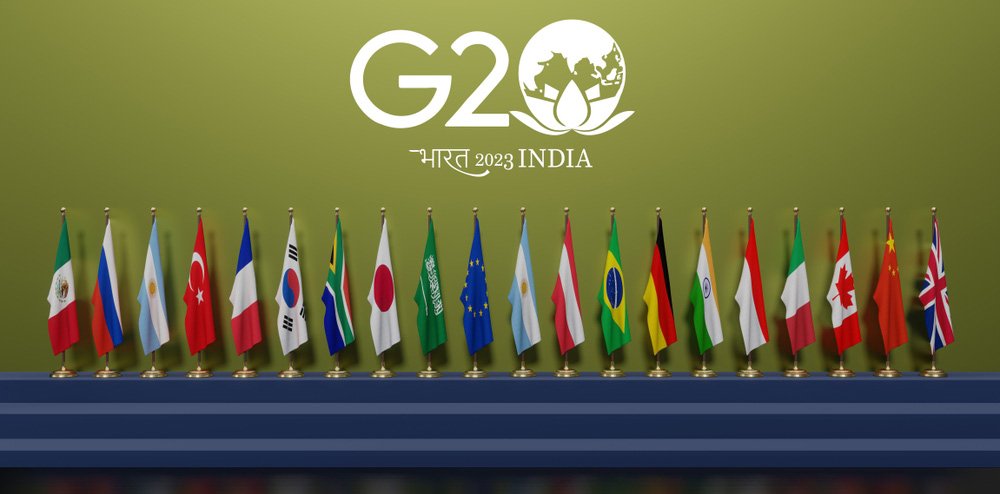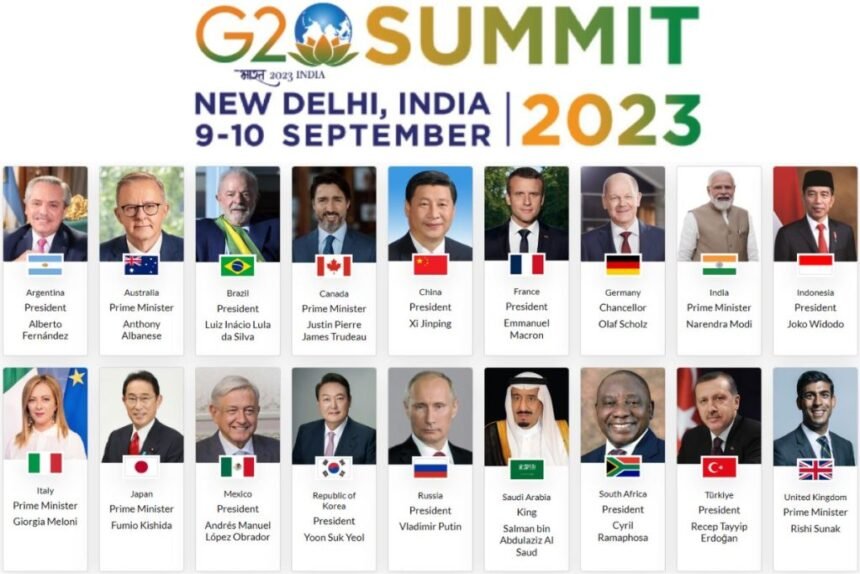Premier Li Qiang will represent China at the G20 Summit 2023 in Delhi on September 9-10.
President Xi Jinping will not visit India for this week’s Group of 20 or G20 Summit, instead sending Premier Li Qiang to represent China in Delhi on September 9-10. While Chinese Foreign Ministry spokeswoman Mao Ning refused to comment on Xi Jinping’s decision to boycott the G20 summit, it is widely acknowledged that ties between China and India have deteriorated due to their disputed border.

US Vice President Joe Biden was “disappointed” that Xi opted to boycott the G20 Summit 2023. “I’m disappointed…but I’m going to see him,” Biden told reporters, without specifying when he may meet with Xi.
5 likely reasons why Xi Jinping will not attend the G20 Summit 2023
- When Beijing recently issued a so-called “standard map” staking claim to Arunachal Pradesh, Aksai Chin, Taiwan, and the South China Sea, Alipov sought to downplay it. Every year, China publishes the standard map, but this is the first time that India has registered a significant complaint over the map issues, disputing the Communist nation’s assertions. The map’s publication occurred only a few days before the G20 Summit 2023, which was a bit surprising. Prime Minister Narendra Modi had a brief conversation with Xi at the recently ended BRICS Summit in Johannesburg, during which he conveyed great worry over the situation along the Line of Actual Control.

2. China-India relations have deteriorated due to their disputed boundary. Tensions erupted three years ago in the Ladakh area, killing 20 Indian soldiers. It escalated into a protracted stalemate in the rough mountainous terrain, with each side stationing tens of thousands of armed soldiers backed up by artillery, tanks, and fighter planes.
3. Trade tensions have also escalated, as has India’s expanding strategic connections with China’s major foe, the United States. Both India and China have removed journalists from the other country.
4. According to Reuters, Wen-Ti Sung, a political scientist at the Australian National University, “Xi’s skipping the West-heavy club of G20 Summit 2023 right after attending the BRICS summit may be a visual illustration of Xi’s narrative of ‘East is rising, and the West is falling,’ as well as showing solidarity with Russia’s President Putin, who is also not attending.”
5. Alfred Wu, associate professor at the National University of Singapore’s Lee Kuan Yew School of Public Policy, believes Xi may be hesitant to travel overseas due to his concentration on local concerns. “Xi Jinping is setting his agenda, where his top concern is national security, and he has to stay in China and make foreign leaders visit him instead,” Wu added.

What exactly is the G20, and what does it do?
The Group of Twenty (G20) is made up of 19 nations (Argentina, Australia, Brazil, Canada, China, France, Germany, India, Indonesia, Italy, Japan, Republic of Korea, Mexico, Russia, Saudi Arabia, South Africa, Turkey, United Kingdom, and United States) and the European Union.
These members account for around 85% of global GDP, more than 75% of global commerce, and almost two-thirds of the global population. It plays a significant role in defining and enhancing global architecture and governance on all key international economic issues as a venue for international economic cooperation.
When was the G20 established? Why?
The Soviet Union crumbled in 1991, thereby ending the Cold War. Simultaneously, robust economies were growing in the Global South, including Brazil, China, and India. In this setting, a demand for reform in global governance and international institutions developed. Simply said, traditional fora like the G7 or international organizations like the World Bank were incapable of dealing with problems in the emerging global order.
The Asian financial crisis swept through some of East Asia’s fastest-growing economies in 1997. It quickly spread throughout Latin America. The G22, the G20’s first incarnation, was formed amid this crisis in 1998. Initially envisioned as a one-time crisis-response gathering, two more sessions (G33) were scheduled in early 1999 to address global economic and international financial system changes.
The G20 Summit 2023, in its current form, was established in late 1999 as an informal platform for its members’ Finance Ministers and Central Bank Governors to convene yearly.

When did the G20 Leaders’ Summit get started? Why?
Between 1999 and 2008, the G20 functioned primarily behind closed doors. Annual meetings were held, although they were not as important as they are now. The global financial crisis of 2008, on the other hand, catapulted the G20 to its current position. As the globe grappled with the worst economic crisis since the Great Depression (1929-1939), France, which held the EU presidency at the time, advocated for an emergency summit conference to address the issue.
But who should I invite? The G8 (Canada, France, Germany, Italy, Japan, Russia, the United Kingdom, and the United States) was insufficiently influential on its own to stabilize a crisis of this magnitude. Normally, ambassadors would ponder for months on which nations to call, but with the continuous crisis, there just wasn’t time. The G20 was the obvious solution. The inaugural G20 Leaders’ Summit (the ‘Summit on Financial Markets and the World Economy’) was held in November 2008 in Washington, DC. Along with the presidents of its 20 members, the heads of the IMF, World Bank, and United Nations, as well as Spain and the Netherlands, were invited. Since then, annual summits have been held.

How does the G20 function?
It is vital to recognize that the G20 Summit is a loosely knit organization. This implies that, unlike the United Nations, it lacks a permanent secretariat and employees. Rather, the G20 presidency is rotated among members each year and is responsible for putting the G20 agenda together, organizing its workings, and convening summits.
The “troika” consists of the past, current, and upcoming presidencies. The troika of Indonesia (the previous president), India, and Brazil (the upcoming presidency) will occupy the presidency from December 1, 2022 to November 30, 2023.
while the G20’s decisions are important, they are not automatically executed. Rather, the G20 is a platform where leaders discuss numerous subjects and make announcements that telegraph their intentions. They are then implemented by relevant governments or international organizations. For example, if the G20 adopts a trade statement, the real implementation will be handled by an organization such as the World Trade Organization (WTO).

Do you want to know about G20 Summit 2023, Click Here.
Also read: As Xi Skips G20 2023, A New Flashpoint Emerges At India-China Border.
Image source: Google




































